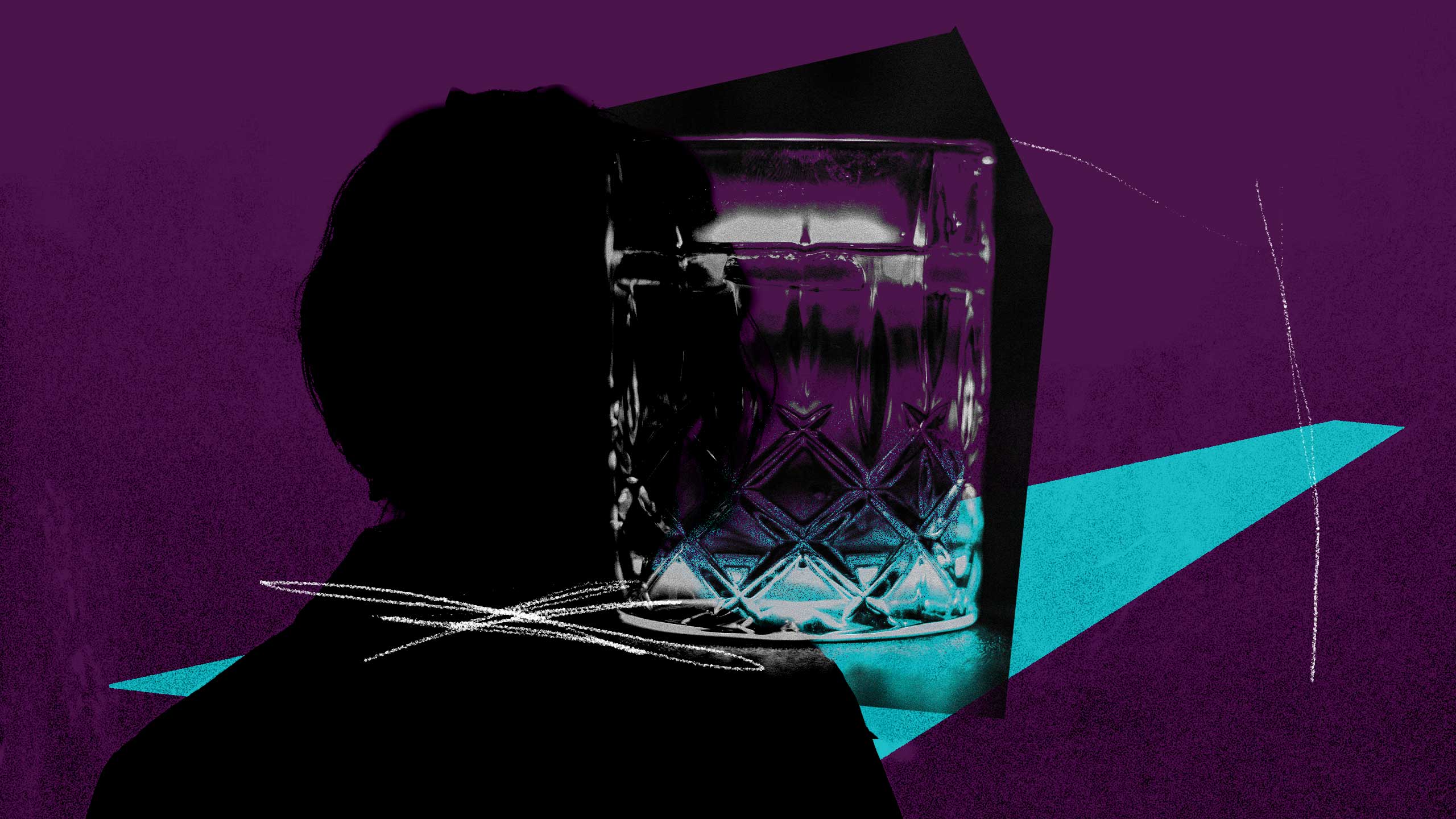I drank for 22 years, from when I was about 14 years old until I was 36. Because it was the longest position I ever held, I never thought I had a bad relationship with alcohol. I didn’t always drink too much. Some days, it was one or two glasses of scotch, just to sleep. Other times, I would swing for the fences. Once, I fell out of a tree and hit an oil tank that was on a concrete slab below me. I was unconscious for an hour and when I woke up, I was on a couch in a stranger’s basement, uncertain how I got there. Another night, I went skateboarding and hit a parked motorcycle. I came back to the party I had left and walked around for an hour holding my split-open forearm, asking if anyone had some paper towel to clean my wound.
As far back as I can recall, my gender was in question. It started as a dull roar, when I was a kid and my sister went to Girl Guides while I was conscripted into Boy Scouts. In response, I loudly protested that I was in the wrong gendered paramilitary youth organization. But growing up in the 1990s, I didn’t have the language and education to know who I was. Instead, I learned to direct my questioning and frustration inward. That’s when the alcohol came in—as a subversion tactic.
My first drink was a nearly empty bottle of red wine I stole from a friend’s mom, who fell asleep drinking it. I snuck it in my backpack and drank the last quarter of the bottle in the woods on my walk home that night. That little bit of wine covered my overactive brain in a blanket. My mind was finally silent.
For a long time, the alcohol worked to suppress my questioning: In the early years, I didn’t think or feel anything. Eventually, that coping mechanism became less potent—and my questions became too powerful. By my mid-20s, I could no longer push away the questions I had about my gender and sexuality. Who was I and where was I going? When I looked in a mirror, I never saw myself in the reflection. I never saw a man, someone’s brother or son or partner. I saw a stranger, like the photograph a detective in Law & Order would slide across the bar. Do you recognize this man? I never did.
I was 34 when I finally gave away my secret to someone else. Late at night, in the dark of a Yukon winter, I told my then-partner I had gender dysphoria. I still couldn’t let myself say “trans.” She took me to Walmart—the only store open late enough to ensure I wouldn’t see anyone I knew—to start building my transition toolkit. I bought a pair of bikini-cut underwear, some leggings and shaving supplies. Then my partner dropped me off at home and gave me space to figure out what to do next.
I began casually—by laying into a bottle of bourbon. I poured myself a glass, then another, and another. Then I shaved off my beard for the first time in 13 years. I shaved my face, ran a bath, poured more bourbon and shaved every hair I could find. On my legs. Under my arms. Over my arms. There was not a surface left unexplored by the blade. By the time I was finished, I was hairless from my eyebrows down, swaying from side to side, trying to take selfies in the mirror. For the first time, I saw someone new—someone I didn’t hate—staring back. I wasn’t sure who I was looking at yet, but I could see something in her to connect with.
“For the first time, I saw someone new—someone I didn’t hate—staring back.”
That first year of transitioning presents its challenges—in your relationship to yourself, your body and ego and with the community around you. The first day I left the house after the bourbon shaving incident, people had questions. Where’s your beard? Is that how your face really looks? Your face looks weird, dude. They were questions I wasn’t ready to answer; I wasn’t even sure I had the answers. In Whitehorse, a small town with a population just over 30,000, it wasn’t hard for rumours to swirl about my new appearance and what it could mean. Everywhere I went, I could feel eyes on me. My landlord texted me to say that he was hearing talk about me being transgender and asked me to tell him it wasn’t true. Everyone had an opinion.
I started having crippling anxiety attacks. I spent a year deeper in the bottle than I had ever been—it was the only way for me to manage the life I was swiftly losing. I was too incapacitated to do anything, really, and so I did little to manage the world falling apart around me. The alcohol remained that same brain blanket I discovered as a teen drinking a quarter bottle of malbec in the woods, my worries erased while the rest of the world disappeared.
A little more than a year later, in 2018, I was punched in the face in the dark by an unknown assailant near my apartment. I knew I had to leave Whitehorse. I packed all my things into boxes, left them in my parents’ basement and hopped on a plane to Toronto.
The minute I was wheels down in my new home, it was as if the emotional baggage I carried with me had been lost in transit. Living in a place so diametrically different from Whitehorse, I could let go of the idea of myself I had been carrying for so long. In Toronto, I had physical and emotional distance from the people that were all too familiar to me, or at least who they thought I was. Here, I finally had the chance at a fresh start.
I landed in the middle of a snowstorm in mid-January 2019 and dragged my suitcases through the deep snow from the train station to my friend’s apartment, where I’d be staying. Even then, I felt renewed. It felt like my first chance at trying the process that had begun in my bathtub back in Yukon. Maybe this was where I could finally figure out who I really was.
The process was slow at first: My hair got longer, and I cut all my old T-shirts into what I thought was permissibly femme. I was hiding less, both from myself and from the world. And over time, the need to suppress my identity and my every thought felt less urgent.
When I first came out, I thought the bravado that alcohol brought to my youth would usher me into this new era like a homerun. Instead, the suppressive nature of it left me on base; I wasn’t running for that next step. I spent my life until then thinking alcohol made me a fearless and invincible force. In reality, it kept me constrained, more in love with a false idea of myself than who I really was. Acceptance—as well as the growth and the difficult change that comes with transitioning—was not possible if alcohol kept me dulled.
Just three months after moving, I had the conversation with myself that had been a long time coming: I needed to quit drinking.
When I look back at photos of myself in those early days, I see a person lost—a weary traveller staring at a map for guidance that alcohol has left obscured. All the years spent not wanting to see the path forward had left me stuck without a road to follow. Those photos show the exhaustion of remaining in stasis for too long.
“I had an inner beauty I kept hidden from myself in favour of something that required less upkeep, care and love.”
But when you quit drinking, it takes a while to detox—from the alcohol in your blood, the cravings in your brain and the self-loathing in your heart. As it trickled out of me, I finally saw who I was in the mirror. I started to see femme layers peaking out behind the facade, aspects of myself that I had been keeping under wraps. I had an inner beauty I kept hidden from myself in favour of something that required less upkeep, care and love.
It’s important to acknowledge that quitting drinking is not suddenly throwing the shutters open and allowing the butterflies to come in and dress me each morning. I had to relearn to do all the things I spent a lifetime navigating without a drink. Socializing became a brand new challenge, as did comforting myself when times were hard. My brain was processing every feeling and emotion that came through. So often, friends got together and laughed and clinked drinks; I couldn’t anymore. It is not a process that becomes easy overnight, or over many nights. It is a long road full of lost memories, regrets and hard truths.
But as I write this, I am 606 days sober. Every day my self-image comes more into focus. Where once I couldn’t even say the word “trans,” it’s now become the most banal aspect of my identity. With time, the suppression from years of drinking wore off, and my memories came back to me. In sobriety, I have discovered what it means to be truly fearless: That is not in self-destruction, but in unclouded affirmation.


 Why you can trust Xtra
Why you can trust Xtra


